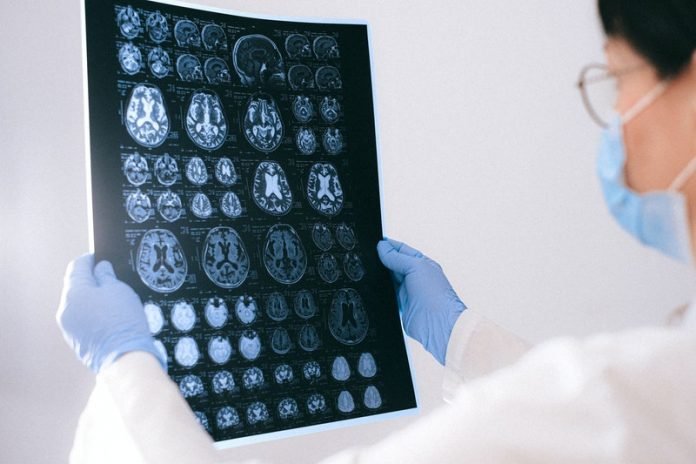
A new study adds to mounting evidence that COVID patients have an added risk of stroke.
Researchers analyzed data on more than 20,000 U.S. adults hospitalized with COVID-19 between January and November 2020.
The analysis found that their risk of stroke was higher than for patients with other types of infections, including flu.
UConn Today sat down with Dr. Gracia Mui, Director of Neurocritical Care, UConn Health, and Co-Director of UConn Stroke Center to find out the latest information about COVID-19 and stroke.
Does COVID-19 increase the risk of stroke? For how long?
Yes, it does. Different studies around the world have shown that having COVID-19 increases your risk of stroke.
According to a large study published in August 2021 in The Lancet, this is especially true in the first two weeks of infection, when your risk of stroke can increase by 3-6 times.
Other studies show this risk of having a stroke can be as high as a 7.8-fold increase. This risk continues to be high for the month after infection, then starts to decrease again.
Does COVID-19 cause abnormal blood clotting?
Yes. We know that COVID is not just a respiratory illness. It causes a hyperinflammatory state which can cause clots to form anywhere in the body.
The disease also affects blood vessels. These clots can affect any organ in the body, but when it affects the brain, it causes a stroke.
Can COVID-19 cause strokes in younger adults?
Yes, it does. It affects younger adults who otherwise had none of the traditional risk factors such as high blood pressure, diabetes, and smoking.
What type of strokes do COVID patients have and what causes them?
It has been observed in multiple studies that COVID-19 causes more large strokes. This is due to larger clots forming and blocking the bigger vessels in the brain—leading to large strokes.
A large vessel stroke is a stroke that happens due to the interruption of blood flow in one of the main large arteries in the brain.
Because a large vessel stroke happens when a large artery is blocked, all of its smaller branches become blocked too.
Do these strokes cause long-term effects?
All strokes have the potential to cause long-term effects.
Depending on where the blood clot is in the brain, different parts of the body can be affected such as weakness on one side, speech problems, or vision problems.
The good news is if you get to the hospital within the first few hours, there may be medication we can give to help break up the clot. A clot retrieval procedure could also be done in some cases.
The most important thing is to get to the hospital as quickly as possible so that we can evaluate the patient for these interventions. Every minute into a stroke two million brain cells can die so every minute counts!
Are COVID stroke patients sicker than non-COVID stroke patients?
Yes definitely. COVID patients who have strokes usually stay longer in the hospital, are less likely to be discharged home from the hospital—meaning they may need a nursing home and are more likely to die in the hospital.
What are the most common stroke symptoms for those with COVID- 19?
For all strokes, remember the acronym BE FAST. If any of these happen suddenly, call 911.
B—Balance problem
E—Eyes (vision issues)
F—Facial droop
A—Arm weakness
S—Speech issues
T—Time! (call 911 immediately)
Is there anything that can be done to prevent a stroke in those with COVID-19?
The best thing to do is to prevent contracting COVID-19 in the first place. The prevention is to wear a good quality mask when around other people, wash your hands often, and get vaccinated.
If you care about COVID, please read studies about new drug that could block multiple COVID-19 variants, and why bald men may have higher risk of severe COVID-19.
For more information about stroke risk, please see recent studies about food linked to higher risk of diabetes, stroke and heart disease, and 5 critical steps to prevent a stroke.



